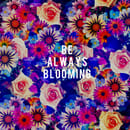I’ve always had a lot of feelings. Emotions were in technicolor and it was beautiful, but overwhelming. Another always for me was words. I read as much as I felt and before I could think of things to say in my own journals, I’d just scribble all over the pages because I liked seeing all the lines filled. Eventually, I started to write stories about girls (most often my age and named Lily) being witches that got their power from silver jewelry or met entrancing strangers with dark hair and blue eyes in art class. I took writing classes for twelve-year-olds and I prided myself on how my eighth grade English teacher told me how strong my voice was. In writing, voice is as easily defined as it isn’t. You can say that it’s style or distinctive syntax or creative plot choices. You can also say that it’s an amorphous undercurrent that runs through any piece of writing, good or bad. Whatever it is, it can make the difference between a piece that reads authentically and one that feels fake.
So I had a voice when I was fourteen and I was handy with words. I kept writing, experiencing the world through how I could put it to paper. When my heart broke for the first time, I wrote poetry on my math homework. On scraps of permission slips, on worksheets I didn’t have to hand in, and in the middle of history notes, I wrote poetry. I was published in my high school’s literary magazine, but there was a certain success that I kept missing. There’s an organization that gives out awards for high school literary magazines and my school’s received a ton, both for overall design and specific pieces. I think I won one, a third-place prose piece, and no more than that. Sure, a high school contest doesn’t determine your strength or future as a writer, but when I look back on my journey as a writer, that fact stands out. Some voice in my head tells me that I wasn’t good, not even then.
I’ve taken two creative writing classes at Kenyon, one in high school, and I’ve been in more writers workshops than I can count. Now, I can’t remember the last time I wrote a poem I was proud of. I was never a prodigy, never a Jane Austen publishing Pride and Prejudice when she was 18, but I always thought I had voice. I believed I had something unique to say. Through my freshman year at Kenyon which was undoubtedly one of the worst years of my life, I wrote like hell. Page after page and almost none of it makes sense. I was in a traumatic state and my writing is the frantic, jumbled pleas of my own brain trying to save itself. Granted, it did and I write this article today as proof of that. But I haven’t been able to write since.
The magic is gone. I can’t use language like I used to, I can hardly write a birthday card. I still love reading and my editing skills have grown far sharper; I just can’t get myself into words anymore. It’s frightening because I always identified as a writer and I don’t feel like that still applies. Every so often I try again because I think maybe if I keep pushing, the block will break. And maybe it will, I’m not dismissing the possibility. Maybe when I heal these wounds, I’ll have something to say again.


